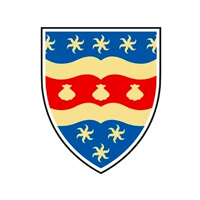fees waived
Optometry, MOptom (Hons)
University of Plymouth, United Kingdom
Subject ranking
UK / CUG 2026 10th
UK / Guardian 2025 21st
UK / ARWU 2024 51st
Costs
food & rentS$17.2K / year
Entry requirements
Scholarships
Unlimited quantity
Unlimited quantity
Unlimited quantity
Limited quantity
Information
Code
Code
Intakes
Website (External)
Programmes
Information
Duration
2029
Plymouth's forward-thinking MOptom (Hons) Optometry degree prepares students for a rewarding career as a registered optometrist by combining clinical training, professional development, and real-world experience. The programme, adapted to meet General Optical Council requirements, equips learners with essential skills through placements in regional practices and the Centre for Eyecare Excellence. Students engage in problem-solving, teamwork, and communication while studying scientific principles, ocular diseases, and ethical business management, culminating in a 44-week final-year placement.The curriculum progresses from foundational science and clinical skills in the first year to advanced examinations and hands-on patient care in subsequent years, including a research project. Accredited by the General Optical Council, the course enhances employability but does not award qualified teacher status. For detailed assessment methods, refer to the institution's website.
In your first year, you’ll focus on learning the basic scientific principles of optometry. You’ll also begin developing the clinical skills essential to the profession. During your one-week observational placement, you’ll see first-hand what working as an optometrist involves. In the second year, you’ll learn about advanced ophthalmic examination and study ocular diseases and pharmacology in more detail. On your two-week clinical placement, you’ll start getting hands-on experience, applying the skills you’ve learnt so far and working directly with patients. In your third year, you’ll continue developing confidence and clinical skills by working directly with real patients at the University’s Centre for Eye Care Excellence optometry practice. Alongside this practical learning, you’ll study complex case scenarios in the key areas of optometry and complete a supervised research project in an area you’re interested in. You’ll also investigate the legal and ethical issues around managing a business. During the fourth and final year you will undertake a 44 week placement where you will have the opportunity to hone your clinical skills. During this year you will work in clinical practice under the supervision of a Registered Optometrist. The modules shown for this course or programme are those being studied by current students, or expected new modules. Modules are subject to change depending on year of entry and up to date information can be found on our website.
A local representative of University of Plymouth in Singapore is available online to assist you with enquiries about this course.

